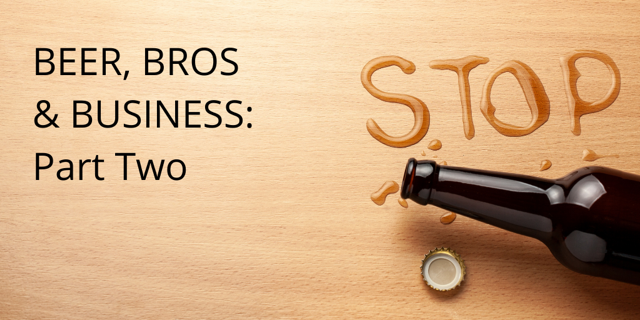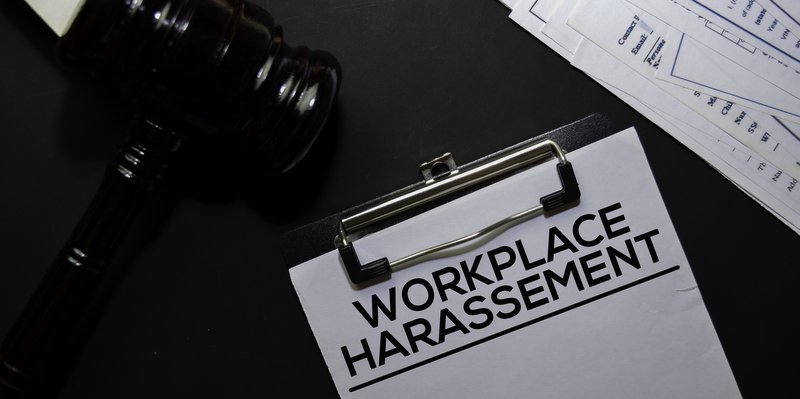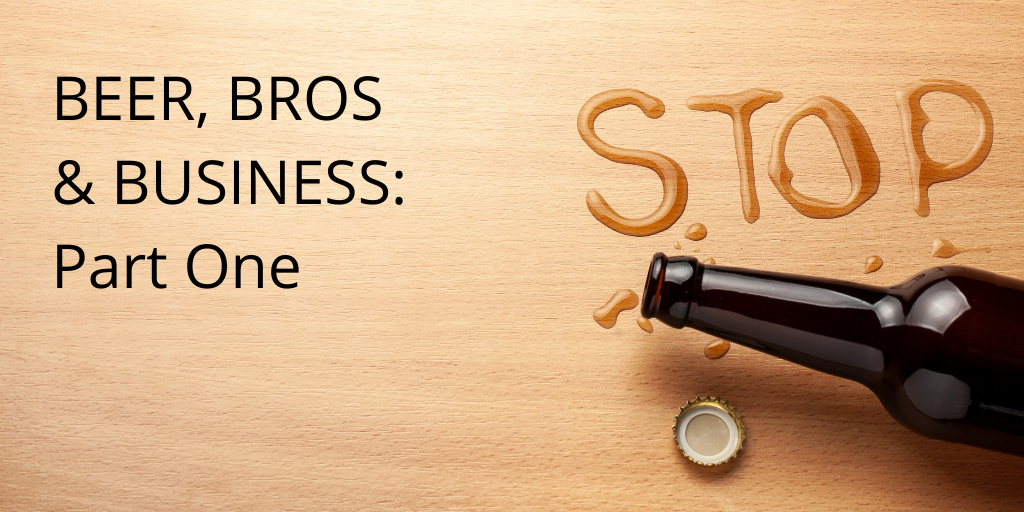
Service industry, front of the house, server, bartender, beertender, waitstaff — all of these service-focused positions might carry different names, but their responsibilities and roles are similar. Tend to the needs of customers, do it with a smile and avoid conflict. But therein lies the major problem — you have to keep guests happy, at whatever cost, because you’re tied to performance compensation.
What this concept is actually costing the craft beer industry goes way beyond just payroll. The true expense is the physical and mental health of employees, litigation fees, high turnover, tarnished reputations, and toxic company cultures.
How silent traumas add up
Working for tips is one of the most susceptible occupations for frequent occurrences of gender-based harassment and violence. Putting up with misogynistic language, sexual harassment and/or abuse just to pay your bills is gross and unacceptable, yet it happens every day in the service sector. But don’t forget to also factor in the:
- late working hours,
- intoxicated guests or other employees,
- sub-minimum wages,
- typical absence of health and vacation benefits, and
- a disproportionate balance of power in the white, male, heteronormative craft beer space.
It’s a breeding ground for misogyny, where the silent trauma of women runs rampant, but speaking up will get you fired.
Please note here that use of the term “women ” is used for brevity, but not all inclusive. When you factor in additional intersections of discrimination like race, age, religion, abilities, and sexual preference, it exacerbates the frequency of occurrences of gender-based misconduct in the hospitality sector.
You need to be aware that if you have team members of various intersections, harassment and abuse is amplified for those members of marginalized communities.
The main reason we continue to see gender-based harassment and violence occur in the craft beer industry is that sub-minimum wage positions with tipped income are usually connected to smaller organizations that lack the human resource policies and tools that larger company’s use to protect their employees. If this sounds familiar, it’s because this small, independent proprietor structure encompasses the majority of craft taprooms and small brewpubs all over the US. With over 6,600 taprooms and brewpubs currently functioning in the US, there is no shortage of silent struggles happening daily, most likely without your explicit knowledge, and it’s traumatizing your female-identifying employees one shift at a time.
A study of sexual harassment charges with the EEOC from 2005 to 2015 revealed that more than one-quarter of sexual harassment charges were filed in industries with large numbers of service-sector workers, including many low-wage jobs that are often occupied by women, and that the accommodation and food services industry accounted for 14.2 percent of the sexual harassment claims filed (Frye 2017). This same study also concluded that nearly three-quarters of sexual harassment charges include an allegation of retaliation either upon being filed or later on in an investigation, suggesting that many victims face retribution when they come forward (Frye 2017).
The history of tipped labor and harrassment
The entire tipping or gratuity system also has deep roots in racism and sexism, brought to prominence after the Civil War by feudal European practices that made Americans feel “sophisticated,” and correlated service staff to slaves. Performance-based compensation locks employees into a no-win situation – express discontent and risk losing your tips (or even your job) or put up with inappropriate behavior and maintain your income.
And this is just on the customer-facing side. Things get even more complicated when you move to the back of the house. Post-shift beers with limited employees on hand during off hours can escalate into situations of unwanted sexual advances or violence, regular product inventory in a walk-in cooler can be transformed into a state of fear, and for many women, even just daily shifts can turn into nightmares working for a manager or owner who abuses their up-power position.
Misconduct also shows up in many forms including crude jokes, misogynistic language (i.e. a woman can’t handle that much responsibility), peer pressure, unwanted and unsolicited groping or grabbing of body parts, threats, inappropriate bumping or brushing past someone, cornering employees in a vulnerable position, propositioning, and withholding compensation based on non-compliance.
How to protect and prevent
Recognition is one of the first steps you can take in the prevention of gender-based harassment and abuse. Acknowledgement that sexual misconduct occurs in every facet of the beer industry, regardless of how big or small your organization is, or whether or not you have an HR department, is one of the first steps you can take as a manager or owner to help prevent these grotesque situations. Every single front of the house environment is ripe with misogynistic language, racial slurs, pandering, groping, grabbing, inappropriate questions, hate speech, unwanted sexual advances, and invasions of privacy. Every. Single. One. There are no exceptions.
Now that you realize the gravity of the situation, let’s talk about being proactive in prevention. No, not that grainy sexual harassment sensitivity video from the 1980’s, but modern training programs in assessment and active bystander intervention that can help you and your team learn how to recognize when gender-based harassment or abuse is taking place in the front of the house and how to mitigate certain situations, which is especially important in service environments.
Safe Bars is a non-profit organization that offers innovative active bystander skills that empowers hospitality professionals to stand up against sexual harassment and assault. Getting Safe Bars Certified allows your organization to proudly display a certification sticker on your taproom or brewpub window to let patrons and employees know that your business is a safe space. Their sliding pricing scale also makes it easy for small business owners in the beer industry to arm their teams with the skills they need to de-escalate difficult situations amongst taproom patrons, as well as among the staff.
iHollaback is another great resource for breweries to receive active bystander, de-escalation, prevention and resilience training.
If you need a more full spectrum HR solution, but cannot afford full-time personnel or a dedicated department, you still have options. HR consulting services specifically for the hospitality industry can be found through companies like Table HR or through the Society of Human Resource Management (SHRM).
A third party reporting system is also vital for the health of your team. Not only do they create vital paper trails for these occurrences, but they are also anonymous and easy to use. Digital reporting services like WeVow, #NotMe, and StopIt Solutions will give your team access to online, anonymous reporting outlets to keep you aware of any issues with harassment or abuse that might occur, and they’re extremely affordable.
Here’s how this plays out for your business
The continuous presence of sexual misconduct and volatile environments in your workspace will lead to increased employee absences, drops in productivity, possible legal fees associated with litigation, high rates of employee turnover, lack of potential candidates for hire due to a tarnished industry reputation, a toxic company culture resulting in negative team morale, and drops in sales if the public gets wind of your problem and decides to boycott your brand.
This is a big list of negative outcomes that await your beer business if you choose to ignore the safety of your team. Not only is ignoring inclusivity ethically wrong, but it’s also fiscally irresponsible.
This problem is not new to the hospitality industry, it’s been going on for decades behind the scenes, but now that technology allows us to share more information with each other than ever before, it’s public knowledge. Everyone deserves the right to work in a safe environment, without fear of being grabbed or followed to their vehicle or belittled with crude jokes. Speaking out against gender-based harassment and violence should be the new norm for craft beer. No person should ever lose their income or job safety for defending their own personal safety. You owe it to your team to get comfortable with these types of uncomfortable conversations and contribute to a better craft beer industry.
References:
Frye, Jocelyn. 2017. “Not Just the Rich and Famous: The Pervasiveness of Sexual Harassment Across Industries Affect All Workers.” Center for American Progress.
Julie Rhodes is the owner of Not Your Hobby Marketing Solutions, an educational services & consulting company that teaches sales, marketing, and management tactics to growing craft beverage businesses through industry-specific webinars, digital courses, and coaching programs. Find out more at NotYourHobbyMarketing.com or contact her directly at [email protected]





Leave a Reply
You must be logged in to post a comment.